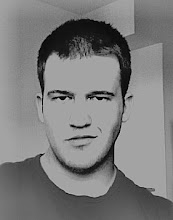I was thinking recently about the lame man that was set at the gate called beautiful (Acts 3:1-10). This really is an incredible story. It's the first miracle following the outpouring of the Holy Ghost (Acts 2:1-4). But, being a huge fan of symbolism, I just got a fresh look ...
There is something special about this story.
Peter and John are on their way to pray. It's a pretty ordinary day, they're just going to the temple at the "ninth hour" (about 3 p.m.) for afternoon prayer with everyone else. I'm sure there were thousands of people pressing in, trying to get the best seat or be the first to claim their favorite corner where they could cry out to God.
Every day, there would be a lame man sitting at the door. His friends would bring him. Maybe they would drop him off and go on in to pray. I don't know. But this HAD to be a prime location for "asking alms" (read: begging). These were the religious people! They were bound by their own image to help this poor man out ... who wants to look like a jerk right before you walk into the temple? That's kind of how I feel in the grocery line when the cashier asks me, in front of the 8 other customers, if I'd like to donate $14 to fight colon cancer. Point being, he has found a GOOD SPOT ... and he comes back EVERY DAY.
Now, the people are filing by, marveling at the most beautiful gate of the temple. It is said to have been made of bronze, but so artfully crafted that it was more beautiful and costly than the other gates which were covered in silver and set in gold. They're looking at this beautiful gate, and they're accosted by a wretched man. His legs are twisted, his body atrophied by his lack of movement, and his dirty palm is outstretched, asking for just a little help. If a diamond looks brighter against a black background, does an ugly man look uglier against a beautiful background?
Everyone sees this man ... everyone recognizes his predicament. So they throw money. They probably think, "He's poor!" or, "He's hungry!" and they give a coin to ease their conscience. That's all he ever expected. Just a little bit of help.
Then come Peter and John. The two apostles, on fire from a 3,000 soul revival, are on their way to pray when they encounter this man. He asks them, as he had everyone else, for a little bit of help. That's all he wanted. But Peter didn't just help.
Against the natural inclination to behold the beautiful and ignore the profane, Peter "fixed his eyes on him." He would not look at the gate, as long as there was a broken man out front. He would not pass by a broken man on his way to get a blessing. He also did not address the man's poverty.
While the crowds were staring at the gate and giving a pittance, Peter was staring at the man and giving Jesus. He was not interested in helping, he was interested in healing.
How often do we throw money, platitudes, or charisma at the SYMPTOM of a problem, never dealing with the real disease that tries to destroy the people who come to our churches? How often do we throw them a bone without throwing them a lifeline? The church has GOT to become a place where we do more than help. If it is not a place where people can be healed, we've failed. God is not offering band-aids. He is offering restoration.
When Peter decided to look past the symptom and deal with the real problem, what were the results? I'm sure you've dealt with panhandlers in the streets of your city. Whenever you give them a couple dollars, they make a big show of thanking you ... you look like a stellar human being. In the story, you never read of Peter getting any credit. The only thing you see is a man, who had been lame, walking, leaping, and praising God. I wonder how many of us are really willing to get out of the way, stop worrying about being seen, and let God do what only God can do.
Moral of the story:
I hear a lot today about "helping the poor". That's all well and good. I am 100% in favor of compassion. We must, however, be willing and able to offer more than just help. We are the Church of the Living God. This is the God who does more than help ... this is the God who heals.
We cannot get so caught up in our beautiful traditions and rituals that we neglect the poor, that much is true. But we must also avoid the temptation to deal with the immediately visible symptoms rather than the real problems. People are not poor because they lack money. People are poor because they are broken. Let's never forget that. We serve a God who heals the broken. And that's worth more than all the money in the world.
-




No comments:
Post a Comment